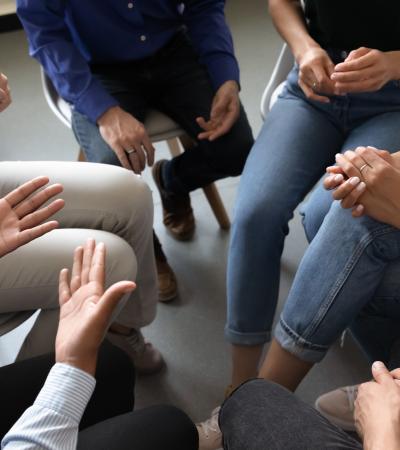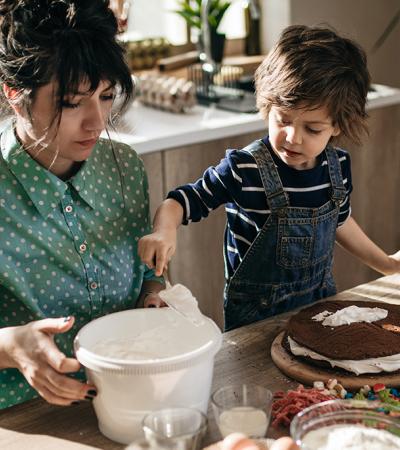Virtual Language Conversation Hours invite already conversant speakers of a second language to gather and practice in a casual setting. Through interactions with the group, participants strengthen their language skills in organic and accessible ways while also providing opportunities to explore various cultures.
In times of increasing potential isolation this provides space for genuine connections between new people with shared interests.
Advanced Planning
These programs are meant to improve the Spanish or French language skills of attendees, including retention of language already known, as well as learning new words, phrases and cultural content. Nora and Ian, the two of us who plan the programming, are fluent in Spanish and French respectively. There are also other Spanish speaking staff members that assist with the Spanish Conversation Hour.
As a monthly program, a calendar event must be created to advertise the event, as well as the creation of Zoom rooms to link into the calendar. We usually do these in batches once every few months.
Pre-planning for each individual event takes less than a half-hour and usually consists of writing some questions for people to ask each other in case there is a lull.
Marketing
We promote conversation hours through our library calendar and newsletter, email listservs, social media, local bulletins (e.g., Senior News, OP FYI).
Pre-COVID, this program was always in-person, but in going virtual, Google also seems to direct searchers our way. We have had these running in-person for years with a regular flow of returning patrons as well as new ones coming to join.
Budgeting
There is no immediate cost to running this program. The only costs are the library’s Zoom subscription and paid staff time.
Day-of-event Activity
On the day of the event, we log in to Zoom 20 minutes early to open the room, check our microphones/cameras and change our background to a custom Oak Park Public Library image. Ideally, this event is attended by two staff: one to lead and one to help with tech problems as they arise. If doing an in-person instead of virtual conversation hour, we only need one staff member.
Program Execution
Traditionally, our Spanish/French Conversation Hour took place at one of our local branches but due to the pandemic we moved online, widening access outside the library building. In going virtual, we have gone from regular attendance of 6 to 8 to attendance of 10 to 12, including attendees joining from other states and countries. Oak Parkers who joined the virtual French Conversation Hour in April met new attendees from Connecticut, Maryland, Iran, and Switzerland.
During the most recent Virtual Spanish Conversation Hour, 13 participants gathered from across the globe, providing an opportunity to share varying perspectives on how we shelter in place. Participants expressed their gratitude at being given a virtual platform to connect with others during a “difficult and isolating time,” all while working on their Spanish and French! In navigating online programming, patrons are not only brushing up on their language skills but also sharpening their digital skills.
Program evaluation is done through tracking attendance numbers, emailing attendees a link to a program survey after they attend, and filling out an Impact Form when applicable. Impact Forms are a home-grown form we use to collect qualitative data through writing down stories of meaningful moments that occur in the library or during a library event.
Advice
While we only host Spanish/French currently, this program could be adapted to any language, including an ESL Conversation Hour.
With this type of programming, it is useful to have a plan in place for when a conversation stagnates or to deter any one individual from dominating a conversation. Make it clear at the beginning that all skill levels are welcome and that everyone is here to practice and get to know new people.
Introductions and an ice-breaker question can be helpful get things started. Asking how people usually practice languages near the end of the hour is a good way for attendees to share resources with one another to keep learning outside of the program.
Supporting Materials
- Feedback (Coming Soon!)
- Programming Librarian Facebook Group




